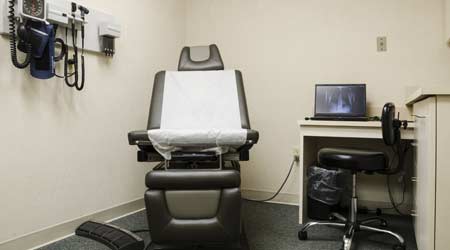Healthcare Leases: Termination Rights
An article about considerations for landlords in negotiating leases with physicians or physicians groups
When crafting a new healthcare lease — the formal start of a relationship for both tenant and landlord — it can be jarring to put a lot of thought into the end of that relationship. But, whatever begins, also ends, and termination rights are an important consideration with respect to medical-related leases.
Here are just a few questions that might come up during lease negotiations. What happens if:
• a physician tenant loses his or her medical qualifications and hospital privileges?
• a physician practice needs to expand?
• the hospital goes dark?
• the physician practice is consolidated or acquired by a hospital or healthcare system? (With the Affordable Care Act demanding greater efficiencies in our healthcare system, many leases are being terminated and abandoned, or consolidated and expanded to achieve this efficiency.)
• a lease is terminated — will the tenant finish allowance be paid back?
• a member of a physician group dies or becomes disabled?
In this last example, because the tenant is often a sole practitioner, or a physician group with a few physicians, the death or disability of one or more physicians will likely have a significant effect upon the subsequent performance of the tenant. If the tenant healthcare provider consists of three or fewer physicians, the landlord may make the death or disability of one of the physicians an event of default under the lease. Additionally, with respect to disability, there is often a struggle to define disability. While an insurance company may define disability one way, this is often more restrictively than the physician would consider reasonable.
Although a landlord or tenant cannot know whether any of these situations might occur, the time to negotiate these termination provisions is during negotiations prior to the lease being signed.
You also need to keep in mind the Stark Law lease exception, which prohibits amending a lease agreement during the first year of the term to change the rent charged, or any other provision that would affect the rent charged, since the safe harbor exception requires that the rental rate is set in advance. To make such a change, the parties would have to terminate the current lease agreement and enter into a new lease agreement; however this can only be done after the initial one-year term of the original lease agreement has passed, and the new lease agreement must also be for a term of at least one year.
Click here for more information about Stark Law, which prohibits physicians from making referrals for certain "designated health services" to entities in which the physician has a financial relationship.
This is the fifth part of a 10-part series on healthcare leasing issues. Remaining parts will appear monthly throughout 2015.
Brooks Smith is a commercial real estate and finance attorney for Bradley Arant Boult Cummings LLP. He regularly represents healthcare clients in all aspects of commercial real estate development, acquisition, disposition, leasing, and financing. Connect with Smith on LinkedIn or through Bradley Arant Boult Cummings’ website.
Related Topics:


















